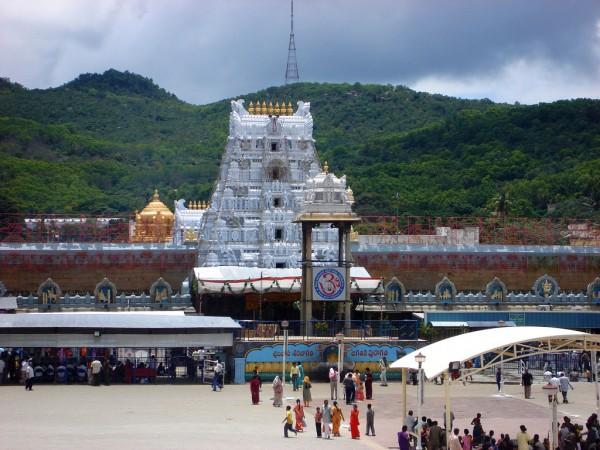
India's richest temple, the Tirumala Venkateswara Temple, popularly known as Tirupati temple, has deposited 2,780 kg of gold with India's largest bank by assets, State Bank of India (SBI), under the long-term gold deposit scheme.
This move comes after the Centre announced its gold monetisation scheme in the Union Budget 2016. The new scheme allows depositors of gold to earn interest on their metal accounts.
In February 2017, the Tirumala Tirupati Devasthanams (TTD), which manages the temple, took a decision to convert its gold deposits under the short-term gold deposit scheme to the long-term gold deposit scheme.
Following the decision, 2,075 kg of gold was deposited to monetise it at a rate of 2.5 percent per annum for a period of 12 years from date of investment, Business Standard reported.
Other than 2,075 kg of gold, TTD deposited 705 kg of pure gold, which it handed over to the Mumbai mint earlier in May, bringing the total gold deposits made so far to 2,780 kg. SBI has also issued certificates of deposit to TTD for the deposits.
In 2016, TTD had deposited 1,311 kg of pure gold bars with Punjab National Bank.
Tirupati is situated in Andhra Pradesh. More often than not, the temple receives offerings from devotees in the form of cash, jewellery, gold, silver, property deeds and even share transfers via demat accounts.
A TTD official told BS that offerings in the form of gold touch around 1 tonne per year. "In the case of property deeds, due procedure is followed by the concerned department to transfer the titles. The temple also gets silver, diamonds and other items," the TTD official added.
TTD expects to receive Rs 1,110 crore in capital funds during financial year 2018; this is the major source of revenue from devotees. The temple management is also expecting Rs 807 crore as interest on investments, the business daily reported.
















